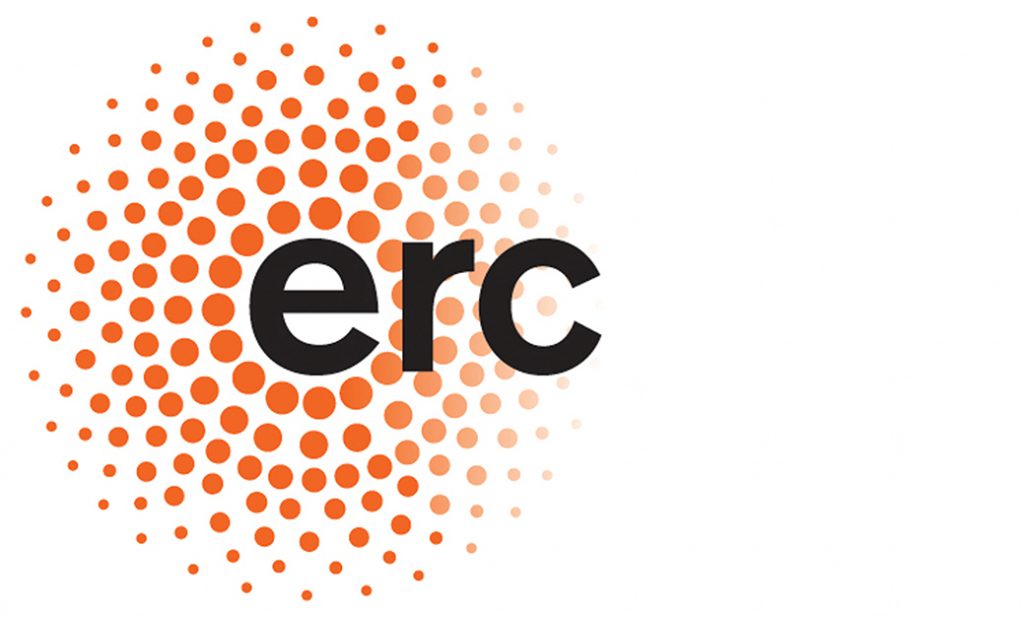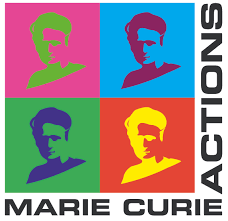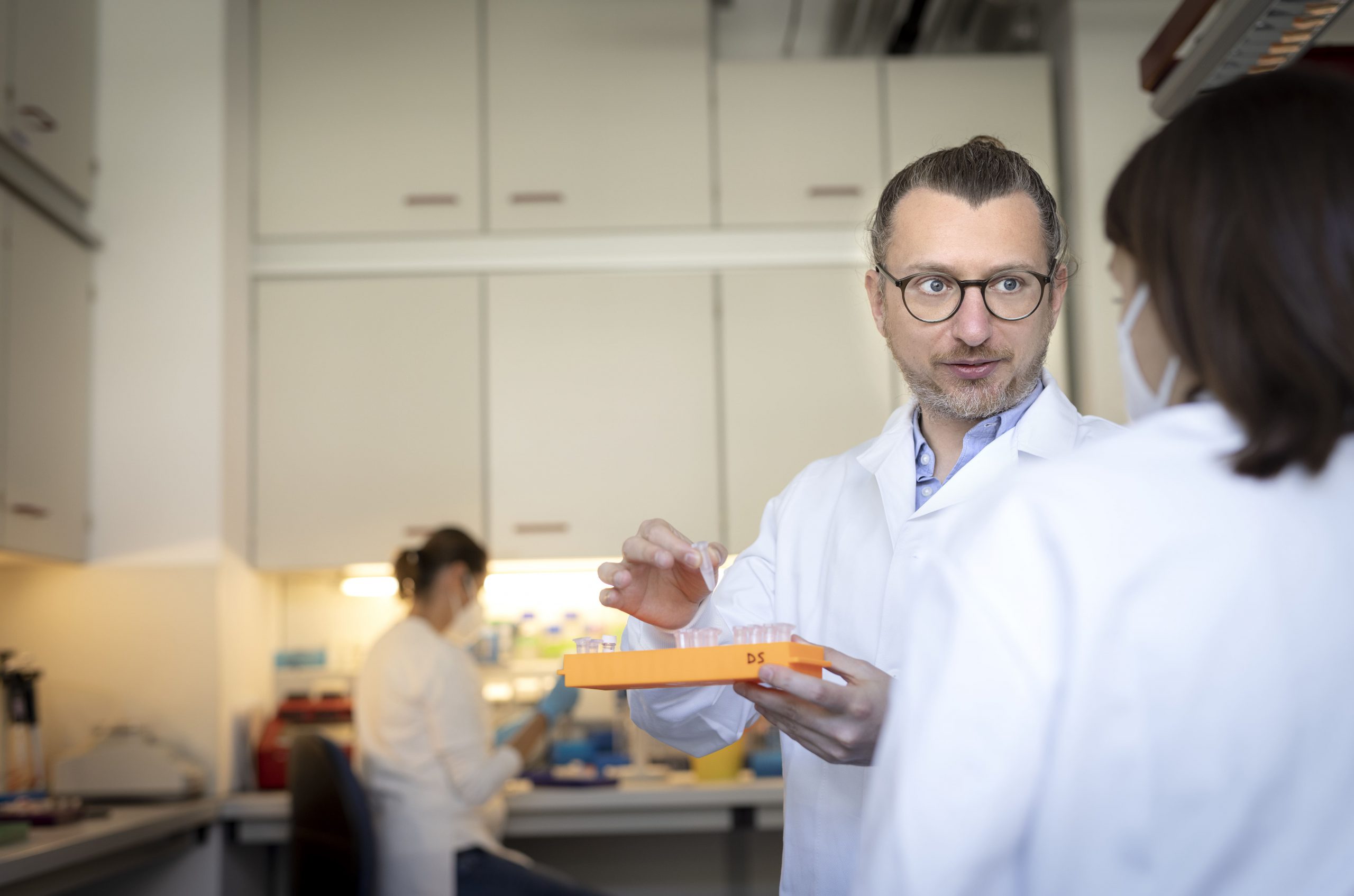Background
Hematopoiesis is a complex developmental process orchestrated by sets of transcription factors and master regulators, DNA-binding proteins that activate or repress lineage-specific gene sets by binding at their cognate target DNA sequences. Very often, mutations involving genes critical to hematopoiesis result in the development of different types of leukemia. Similarly, epigenetic alterations at lineage-specific regulatory regions in the blood are associated with defects in hematopoiesis and leukemia, and play critical roles in disease predisposition and in response to therapy.
Our Research
The dark side of the genome
Functional non-coding regions such as enhancers and insulators play an essential role in disease, and mutations at non-coding elements can drive observable phenotypic changes comparable to those driven by mutations at coding sequences (see Seruggia et al. 2015; Seruggia et al. 2020). Sequence variation at intergenic regions is associated with risk of pediatric B-ALL. However, due to lack of appropriate technology, just a limited number of disease-related regulatory sequences have been described, leaving many potential targets of therapy to be discovered. For these reasons, our goal is to investigate the contribution of non-coding sequences in cancer. We focus on development of leukemia and drug resistance. What is the role of enhancers in the acquisition of drug resistance? How chromatin topology affects gene expression in leukemia? What is the effect of sequence variation at enhancers whose mutation is associated with leukemia? We use epi/genome editing (CRISPR, CRISPRi, CRISPRa), chromatin profiling (ChIP-seq, Cut and Run, ATAC-seq) and computational biology to answer these questions.
Targeting chromatin modifiers in pediatric malignancies
We previously reported a connection between two chromatin modifiers of the SAGA complex and self-renewal in mouse embryonic stem cells (see Seruggia et al 2019). We discovered that loss of TAF5L and TAF6L in mouse embryonic stem cells results in a dramatic reduction in H3K9ac, followed by downregulation of MYC along with its target genes. Since gene expression programs between stem cells and cancer cells are highly similar, we hypothetize that components of the SAGA complex are essential in MYC-driven malignancies. Can we harness vulnerabilities within the SAGA members to treat MYC-driven malignancies? What is the role of SAGA components in normal hematopoiesis and in leukemia? We use mouse models, genomics and genome editing to answer these questions.
Projects and Funding

- Functional Interrogation of Non-coding DNA Sequences in leukemia development and drug resistance (FIND-seq)
CCRI responsible Principal Investigator: Davide Seruggia
Grant from the European Union, H2020 ERC Starting Grant, ID – 947803
Duration: 01/03/2021 to 28/02/2026

- High-resolution dissection of non-coding determinants of disease (B-ALLeles)
CCRI responsible researcher: Ana Patricia Kutschat (Supervisor: Davide Seruggia)
Grant from the European Union, HE- Marie Sklodowska-Curie Action Postdoctoral Fellowship, ID – 101061151
Duration: 01/11/2022 to 31/10/2024

- Disease-associated variants at ARID5B
CCRI responsible Principal Investigator: Davide Seruggia, Co-Author: Ana Patricia Kutschat
Grant from the Austrian Science Fund (FWF), Stand-Alone Programme, ID – P 36302
Duration: 01/09/2023 to 31/08/2026 - Harnessing vulnerabilities at SAGA in MYC-driven cancer
CCRI responsible Principal Investigator: Davide Seruggia
Grant from the Austrian Science Fund (FWF), Stand-Alone Programme, ID – P 36069-B
Duration: 01/01/2023 to 31/12/2025
Selected Articles
Full list of publications here
Collaborating Partners
Luca Pinello (Massachusetts General Hospital and Harvard Medical School), Daniel Bauer (Boston Children’s Hospital and Harvard Medical School)
About Davide Seruggia
Dr. Davide Seruggia (PhD), obtained a degree in Biotechnology at the University of Milano-Bicocca (Italy) in 2010, and a PhD in Molecular Biology at the National Centre for Biotechnology (CNB-CSIC) in Madrid (Spain) in 2014. During his PhD under the supervision of Lluis Montoliu, he focused on non-coding DNA regulatory sequences and generated several mouse lines carrying deletions of selected enhancers. Analysis of these mice highlighted the relevance of non-coding elements in regulating patterns of gene expression. In 2015 he joined the laboratory of Stuart H. Orkin at Boston Children’s Hospital and Harvard, where he trained in hematology, stem cell biology and genomics. In Boston, Davide used genomics and genome editing to explore the role of epigenetic factors, chromatin modifiers and transcriptional co-activators in the context of mouse embryonic stem cells, and generated a series of mouse models to study how chromatin modifiers control hematopoiesis, erythropoiesis and the expression of globin genes. In 2019, he was promoted to Instructor in Pediatrics at Harvard Medical School and attracted funding from the WES Foundation and Pedals for Pediatrics to investigate non-coding sequence variation in pediatric leukemia. In 2021 Davide joined the St. Anna Children’s Cancer Research Institute as Principal Investigator and CeMM as Adjunct Principal Investigator, supported by an ERC Starting Grant.








